By Cory Gillette Rinzler
Daughter of Joan Gillette
These remarks were delivered at a ceremony honoring Joan Gillette which took place at Common Ground on May 8, 2017.
At this time of year when the crocuses have pushed through the warming soil and the blooming daffodils dot the rockwall and line the roads, I think of my mother.
When I look out across this campus today and see the the seeds of her work, I think of my mother.
I see her bending over a flower arrangement, dirt and clippings covering the table, as she carefully inserts the hollowed out stems into the sharp spikes that mound the bottom of the vase. With her head tipped just so, she twists back a strand of her long hair, inserts the last fern and looks up at me.
I so badly want to tell her that I have daffodils now. I want her to see how I cleared the hill, planted the bulbs in the fall and now have hundreds of blooms in the spring. Me, the daughter who screamed in the heat of an argument, “I am nothing like you!”, now knows what it feels like to use her hands to dig in the dirt, wait through the seasons and make things grow.
When we had that argument, mom was giving me feedback I did not want to hear on my nail polish and waxed eyebrows. Makeup was so not her, not what she valued. In the push and pull of being nothing like my parents and feeling rooted to them and their philosophy at the same time, I felt I needed to carve out some space for my own self. However, I had not strayed very far. I was already starting my teaching career, already beginning to have that feeling in my chest that the system was not fair, more had to be done, the world could not be this unequal. I still have that feeling today, the sense of urgency, the sense that we can’t wait to make a change because it is too much work or too fast for the adults. A kid only has one chance at kindergarten.
But I am like you mom.
There is a saying, “You play the hand that you are dealt.” In my family it was, “You get what you get and you don’t get what you don’t get.” That was said at dinner when we were complaining about mom’s cooking, at any meal at the parent run cooperative daycare, when they refused to buy me Jordache jeans or on my 13th birthday when I did not get the walkman that I had begged for.
And now, more quietly, as we watch my mother continue to decline.
However, my parents also believed that “To whom much is given much is expected.”
In 1969 two Harvard educated privileged connected white kids could have done anything and gone anywhere. Instead they moved to a diverse neighborhood in New Haven that was reeling from the effects of white flight, they taught in the public schools and they sent their children there too. Jack and Joanie lived their beliefs.
As an adolescent, I never understood why my mother was always working. She would arrive home at 4 o’clock carrying the sweet sweaty institutional smell from the high school in the door with her, and put down her bag. After grabbing a handful of peanuts, she would get back to work. She had piles everywhere, on the coffee table, in the dining room and in the corner of the sunporch. Student work, professional texts, poetry collections and novels. The books were dog eared and full of scrap paper bookmarks, and covered with sheets and sheets of lined paper with scrawled notes and references.
My mother could not take a walk on the beach or in the woods without stopping to pick up a seed pod, or egg sack. She would bend down, demand that we watch, then dissect it, and explain each of the parts. Usually she would end by wondering aloud at its connection to other things she had seen before or a science and literature course she was writing. She would stand up, wipe her hands on her jeans and say, “Fascinating!” and move on.
One of my mom’s favorite books was, Teaching with Fire: Poetry that Sustains the Courage to Teach. Many people may not realize that my mom was not just a lover of poetry, but a writer as well. This specific book is a compilation of poems and reflections from teachers on how those poems sustain them in their work and connect who they are, with what they do. It comes from the Center for Courage and Renewal and it recognized teachers as leaders in their schools and their communities.
I am like you mom…
As Early Onset Alzheimer’s removed her ability to clearly communicate, cook, drive and shower, this was the book that my mother walked around with. She would stroke it and tap it. She would clutch it to her chest. She would show it to us and say, “My teaching. I am reading this for my teaching. I need to work on my teaching” At that point there was so much that she could not hold onto, but she still knew that being a teacher was who she was and she needed us to remember that she still could contribute, she had a purpose.
One day the book disappeared and like many days during the ravages of Alzheimer’s disease we mourned another loss, the loss of her identity and sense of where she fit in this world.
When I was a kid it was rare when my parents took us to the playground on a weekend. They were usually both busy with projects, contraptions and more yard work. On those days, I would get my mother to push me on the swing. She would push and the chains would creak as I pumped my legs back and forth. Higher, higher, higher until all I could see were my sandals and the blue sky. I remember that when the visit was over and Susannah and I were back at the house, I could still feel her hand on my back pressing into my white cotton t-shirt. I could still feel her hand pushing me forward.
Even today, standing here on the grounds of this school, I feel my mom’s imprint on my back. I feel that imprint when I have to be brave, when I fight for what is best for kids instead of what is popular, and when I stop in the woods, and marvel at the beauty of the daffodils in the spring.
See mom… I am a lot like you.

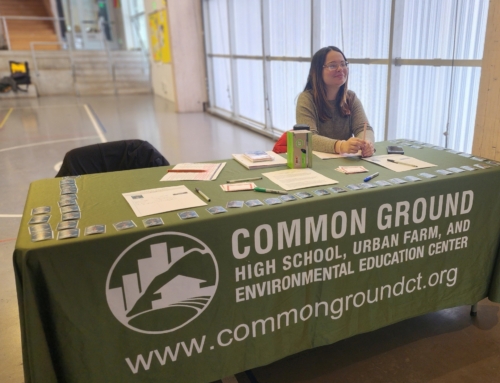
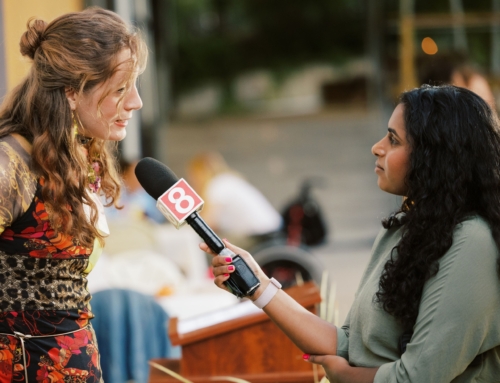
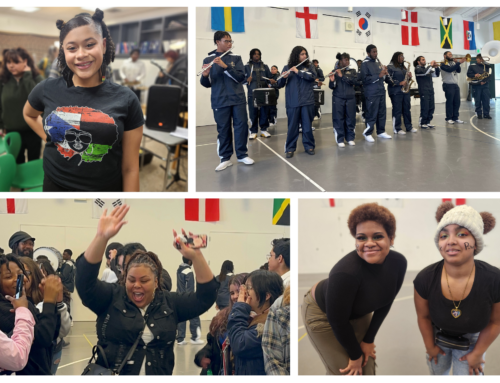
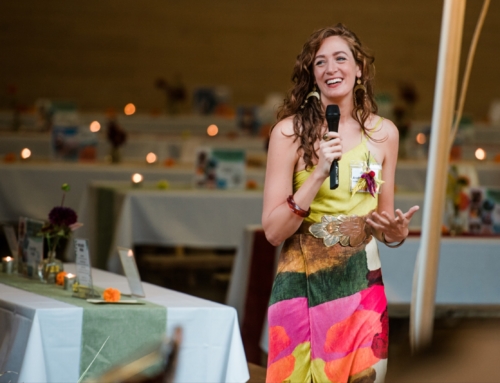
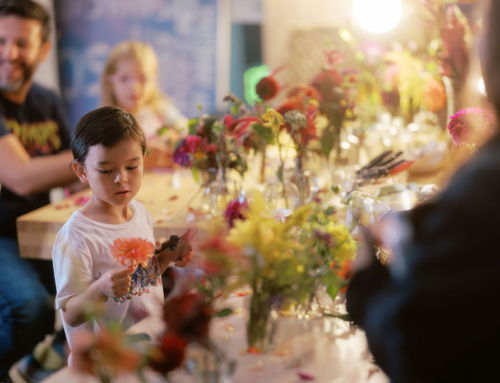
My heart is with you Cory. I know how much you loved your mom and how hard these last years have been for you. Sending you lots of hugs.